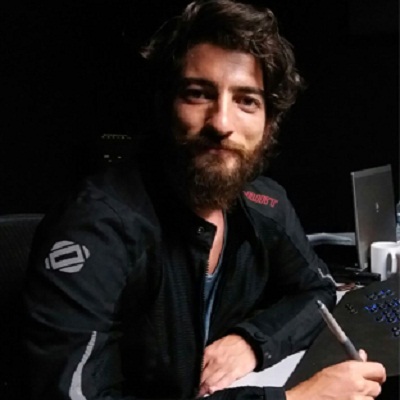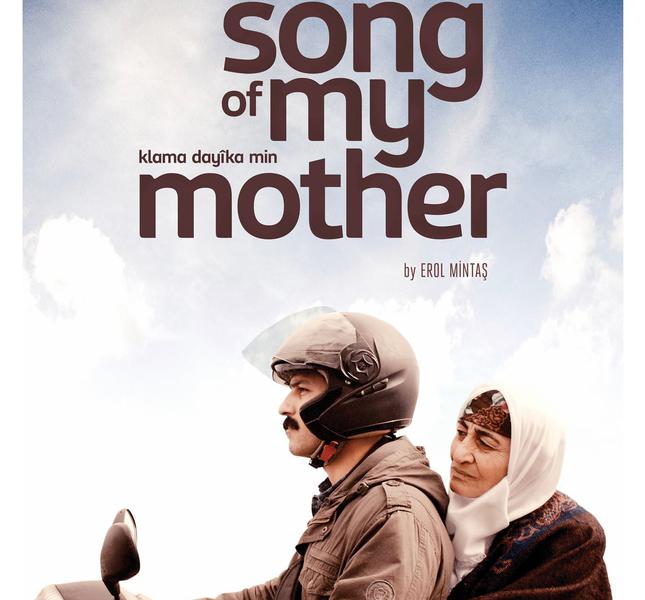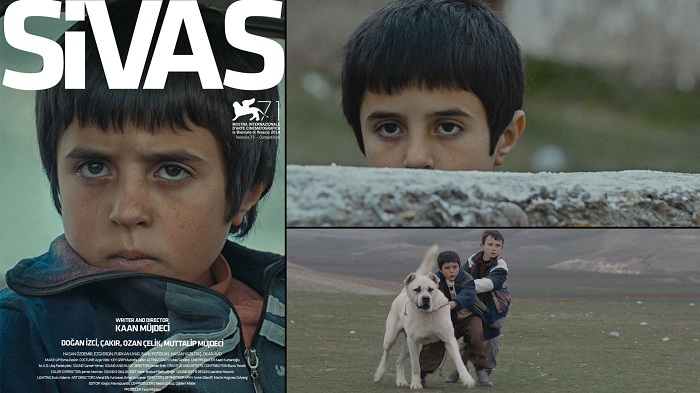
Turkish colourist Metin Okutay has recently joined colourist based company, Nube Studio that is located in Khar,Mumbai. He is the latest international talent entrant in their admirable roster.
Okutay has worked for six years in his native Istanbul. And now he found his way to the colour team of Nube where he anticipates working on various Indian projects.
Animation Xpress caught up with the Turkish talent, who talks about his journey as a colourist, experience of working in Turkey and what he expects in India.
Please give us a brief description of your career journey.
Metin: Since childhood, I have always been fascinated towards cinema and photography. During high school, I started shooting amateur shorts and music videos. Then, I was studying cinema, television and photography in Istanbul Bilgi University. There, I learned a lot about cinematography and storytelling. After completion of the course, I wanted to specialise in one subject. So I started as a telecine assistant in one of the leading companies of Istanbul that is 1000 Volt Post Production in 2010. I believed that expertise on colour grading would gain me a lot about cinematography. When you knew how to use the tools, your creativity would be fed by that. There were Spirit 35 mm telecine with Pandora Pogle software and Aaton scanner. With these tools, I got acquainted with 35 and 16 mm very closely. I assisted prominent colourists like Dominic Aarons and James Norman. They taught me a lot about pipelines, grading, client relations etc. At the same time, I began to specialise in Baselight. Digital era was coming so the film material quickly disappeared from the industry. After one year of assisting, I began to grade short movies, music videos and commercials as a junior colourist and two years later as a senior in 1000 Volt Post Production. At that stage my profession had already become a passion. Eventually, I preferred to be in a new visual and cultural environment like Nube studio as a colourist.
Metin has worked with acclaimed directors and DOPs and graded hundreds of commercials and seven feature films in Turkey.
What inspired you to join Nube studio?
Metin: After 6 years of colour experience in Turkey, I wanted to try other options around the world. I think, new client environments would bring me a lot more experience than the ones I have. Besides that, Indian commercial and film industry is one of the best platforms in the world. If you succeed in this environment you may succeed anywhere in the world. Here there are lots of brands, agencies, deep, colourful culture and an incredible city life. This was one of the best thing about joining colourist based company, Nube studio. When I saw the job opportunity, I thought, working in a colourist only post facility is what I was looking for. I liked their work and I saw the potential of a fruitful collaborations of different colourists and directors and that synergy attracted me deeply. I would prefer working in a place like that rather than a big generalist post house because colour grading is an art and it gives the spirit to any visual form, commercials and movies. If you need a surgery, you go to a surgeon and not a practitioner. So it is very necessary, advantageous and beneficial for the Indian market to have a place like Nube. These are some of the inspirations which drew me to Nube studio.
You have spent 6 years working at 1000 Volt Post Production. How was the experience?
Metin: I can call those experiences as unforgettable. I had a real friendship and passion for the industry. The first Baselight and Spirit Pogle telecine were brought by 1000 Volt to Turkey and there were really good colourists for mentorship. For that reason, the most demanding DOPs and directors were usually working with us and those challenges contributed a lot in my development.
How was it working for the film ‘Song of my mother’?

Metin: It was a very good experience and taught me a lot. The movie is about a young man and his old mother who had recently visited Istanbul from a very far away east city of Turkey. Its locations are in some low profile places of Istanbul. Also the mood of the film is melancholic and nostalgic. Initially, cinematographer George Chiper had let me work on it on my own. I continued for five days then both of us watched the footage around two to three times with and without the director. Baselight helped me a lot for the pace. Later, the film was seen by Bela Starr who was the jury president of the Sarajevo film festival and eventually he selected the movie as the best film.
What were the creative decisions taken by you, the director and the cinematographer for this movie?
Metin: There were some sunrise and sunset times in the film which implies birth and death respectfully. Grading is a real signifier for those parts. We created dream like grades for those parts. And for the other parts, we remained loyal generally to what has been shot naturally. As per I remember, it was shot with Alexa Mini, cook lenses.
Could you also tell us about your work in ‘Sivas’? How was it working with the team?

Metin: Sivas is my first feature project, so it is very close to my heart. I started the project but after one or two weeks the makers of the film decided to try another colourist. However, it didn’t materialise. I took over again and finished the movie which was henceforth sent to the Venice film festival. After being selected there, it was supervised by James Norman who is my old supervisor and he revised some parts of the movie. I worked with Armin Bieloff and Kaan Müjdeci for the project. Armin is a very good DOP and Kaan is also a very talented director. The movie is about a kid who reaches his adolescence. There are dog fights in it which are symbolic and physical phases for him. It has been shot with Alexa also though most of the shots were with steadycam. The main requirement of the director was to create a 35 mm effect in sense of the depth of field. That is why in some parts, keying and separating background and foreground were necessary. The movie gained great success by receiving special mention award and the best child actor award at the Venice film festival.
You have worked for over 100 TV commercials and feature films. Which was the most memorable one and the most challenging?
Metin: I guess, the most challenging work for me was a promotional project for one of the leading channels of Turkey. It was shot by a photographer-digital artist who was used to work with Photoshop and similar softwares. He was trying to make me grade frame by frame like Photoshop and I needed to convince him by explaining the differences of working styles of softwares. That was really a hard experience for me but it ended quite well.
Is there any difference between grading for 3D and 2D?
Metin: Yes, there is a small difference in fact but Baselight makes it really simple. 3D stereoscopy definitely needs more time and energy. I had contributed in a project for a Russian gas company named Gazprom. Matching A and B cameras are really important to start but Baselight can handle this easily now with stereoscopic matching. After that geometrical issues come out and accordingly, one has to change keystone, pedestal or horizontally move the frames. Later, convergence problems emerge and at the end, you may start to grade each of them separately with minor twists. 2D projects also can sometimes be harder in a creative way of course but the difference is not just about creativity, it is also about the time and process.
What is your next project?
Metin: I have joined Nube studio so I will be focusing here right now. I believe, I will be succeeding in the Indian commercial industry as well. Also, I have some documentary ideas about Mumbai. Hopefully, I will start shooting for it very soon.
We also spoke to Nube studio business head Ranjan Karkera who gave us an insight of the studio.
Tell us more about Nube’s new addition, Metin Okutay in the colour grading team.
Ranjan : Metin is already an accomplished colourist in Istanbul, Turkey. He has produced great work for many years and shares our commitment that combines technology and creativity to help our clients to bring their vision to the screen. Metin will be a part of the Nube colour family and complement the strong quality of work in the studio, working alongside with senior colorist and founder Navin Shetty.
Is there any particular technology used at Nube for colour grading?
Ranjan: We use Da Vinci Resolve and Baselight as our colour grading platform.
Do you prefer hardware based or software based system for colour grading?
Ranjan: Nube studio’s grading team is supported by software and a strong hardware base that focuses on offering its clients every aspect of the grading world.
Why do you choose to specialise in colour grading?
Ranjan: We launched this service right here in Mumbai to meet the needs of our clients for quality colour grading services with expanded creative capabilities. The idea was to integrate total colour grading experience with benefits of the latest technology and a broader talent pool.
We were in conversation with Turkish colourist Metin Okutay and Nube studio business head Ranjan Karkera. It was a great experience for me interacting with Metin, Ranjan and the whole team of Nube studio. I really loved their awesome studio with a very well equipped infrastructure and a superb team. Animation Xpress wishes the whole team of Nube studio all the best for their future endeavours!
